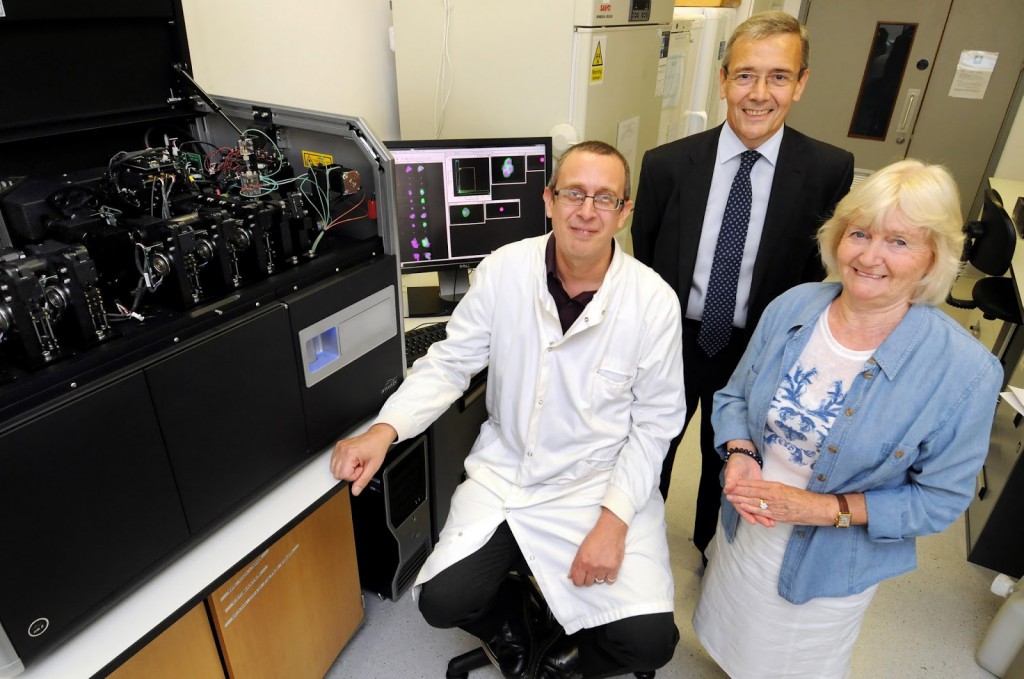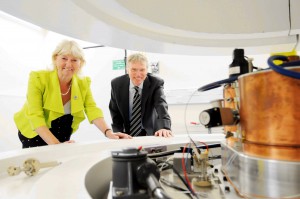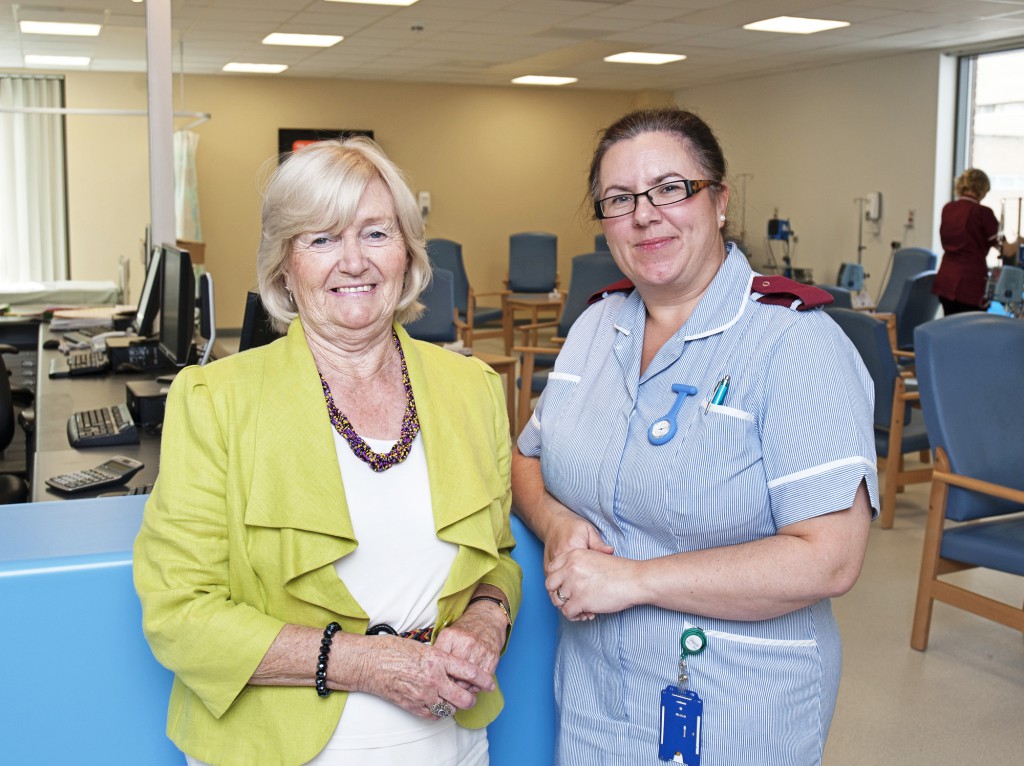The Foundation has made possible significant new approaches to detecting and treating cancer, beginning by equipping the Sir Bobby Robson Cancer Trials Research Centre and funding training posts for a clinical trials research nurse and research doctor within it.
The Sir Bobby Robson Cancer Trials Research Centre:
Constructed by the Newcastle upon Tyne NHS Foundation Trust in partnership with the Northern Institute for Cancer Research and Newcastle University, the Sir Bobby Robson Centre is at the forefront of research into cancer.
It brings together all the clinical research staff who are working to improve cancer treatments into one purpose built unit with a clinical treatment area, laboratory space for blood sample handling and offices for data collection and drug safety reporting.
The Centre offers patients access to early trials and potential new treatments and works closely with the Imaging Research Centre to improve diagnosis and study the effects of new drugs.
Often these are ‘first in human’ trials and the Centre’s dedicated staff also coordinate trials of drugs at later stages of development, working with the National Cancer Networks to ensure patients get offered the best options for treatment.
Every patient who goes on an experimental trial in the Sir Bobby Centre has terminal cancer and knows that standard treatment will not prove effective for them.
In some cases, patients are aware from the outset that the treatment they receive in the Centre will not benefit them at all – but that the information gained from their participation will help someone else facing cancer in the future. They are, as Sir Bobby put it, “utterly selfless and brave.”

Dr David Jamieson, Jim Willens (Newcastle Building Society Chief Executive)
and Lady Elsie with the ISx
Funded through the Foundation:
Most recently, the Foundation contributed £438,000 to purchase an ImageStream Imaging Flow Cytometer, called an ImagestreamX (ISx), which allows scientists to see cancer cells that may be circulating in a patient’s blood and is able to analyse up to 4,000 individual cells a second.
It will provide an insight into how cancers spread around the body and how effectively new treatments are working and will primarily help with the drug trials being undertaken in the Sir Bobby Robson Centre.
The Foundation’s largest funding contribution to date, £850,000, is helping purchase the latest generation in stereotactic radiotherapy surgery.
The Varian TrueBeam STx with Novalis radiosurgery is only the second of its type in the UK and will dramatically improve the accuracy of radiotherapy treatment. It will be used to treat tumours which are currently inoperable and delivers extremely high doses of radiation with pin-point accuracy.
Damage to surrounding tissue is minimal, vastly reducing potential side effects and treatment is delivered in just a few short radiotherapy sessions. Typically, a five to seven week course of conventional radiotherapy can be reduced to just one to three outpatient treatments.
Thanks to fantastic ongoing support, the Foundation has also funded leukaemia laboratory research equipment and contributed to the Royal Victoria Infirmary’s teenage cancer unit in Newcastle.
It has enhanced a specialist children’s waiting area, jointly funded a patient ‘quiet and information area’ with help from The Shay Given Foundation and Macmillan Cancer Support and part funds the greatly valued complementary therapy programme, which provides relief from the symptoms of cancer and its treatment for patients at the Northern Centre for Cancer Care.

Lady Elsie and Professor Herbie Newell in the
Sir Bobby Robson Foundation PET Tracer Production Unit at Newcastle University
The charity is also working with Newcastle University and has purchased an ultra-compact ABT Molecular Imaging Biomarker Generator, which will help with both the diagnosis and treatment of cancer.
The Biomarker Generator was purchased through a contribution of £625,000 from the Sir Bobby Robson Foundation and is only the second of its type in the world and the first in Europe.
It is housed in The Sir Bobby Robson Foundation PET Tracer Production Unit within Newcastle University and was officially opened by Lady Elsie.
PET scanning will be particularly beneficial for patients on clinical trials of new drugs and will help establish much quicker than currently possible whether new drug treatments are working.
